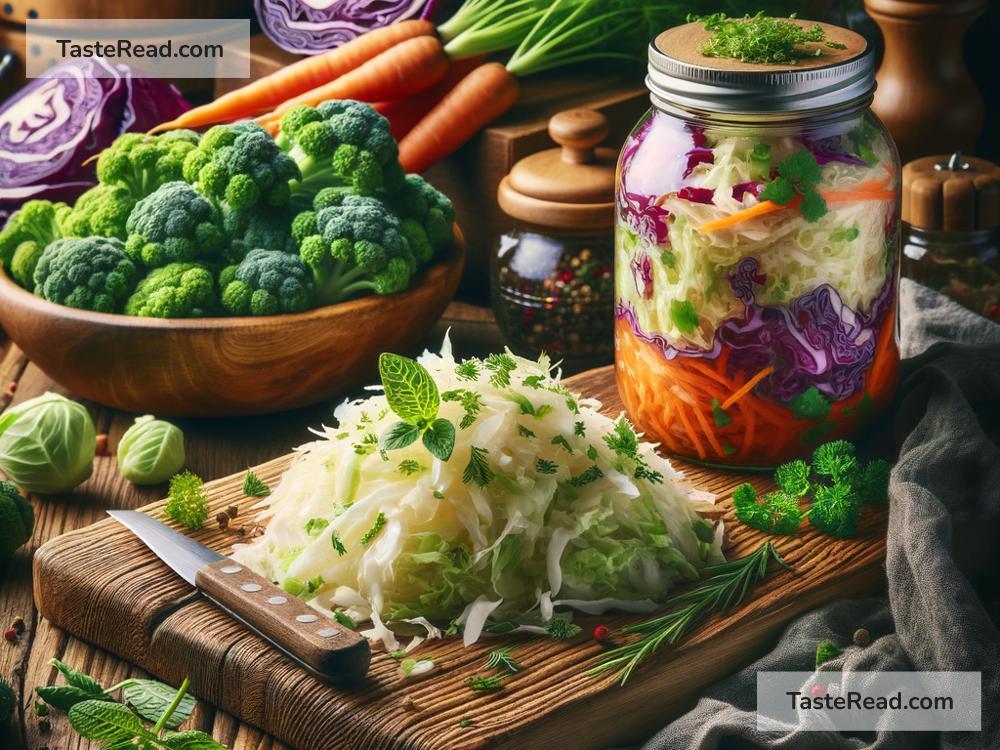Can Cabbage Improve Gut Health?
Cabbage is a humble vegetable that doesn’t always receive the attention it deserves. It’s often overshadowed by trendy superfoods like kale or avocados, but this leafy green deserves a place in every home kitchen. Not only is cabbage affordable and versatile, but it also offers a wide range of health benefits, especially when it comes to your gut. So, can cabbage improve gut health? Absolutely! Let’s dive into why cabbage is such a gut-friendly food and how you can include it in your diet to support digestion and overall well-being.
What Makes Cabbage Special?
Cabbage might look simple, but it’s packed with nutrients that are great for your health. It is rich in vitamins (like vitamin C and vitamin K), minerals (like potassium and calcium), and antioxidants, which protect your cells from damage. However, when it comes to gut health, cabbage’s fiber content and unique compounds make it stand out.
High in Fiber for Healthy Digestion
Fiber is the hero when it comes to gut health. It acts as food for the good bacteria that live in your intestines, helping them grow and thrive. Cabbage is an excellent source of both soluble and insoluble fiber, which means it promotes digestion in more than one way.
-
Soluble Fiber: This type of fiber turns into a gel-like substance in your digestive tract. It helps slow digestion, so your body can absorb nutrients better. Soluble fiber also helps support the growth of friendly gut bacteria, which play a key role in your immune system and overall health.
-
Insoluble Fiber: On the other hand, insoluble fiber adds bulk to your stool, helping it move smoothly through the intestines. This can help prevent constipation and other digestive issues like bloating.
By providing these two types of fiber, cabbage helps keep your digestive system running smoothly and supports a balanced gut microbiome.
Natural Prebiotics for Your Gut Microbiome
Your gut contains trillions of bacteria, fungi, and other microorganisms that make up the gut microbiome. These organisms play a big role in digestion, immunity, and even mental health. To keep the microbiome healthy, it needs a steady supply of food — and that’s where cabbage comes in. The fibers and nutrients in cabbage act as natural prebiotics, which are foods that feed the beneficial bacteria in your gut.
A thriving microbiome can reduce inflammation, improve nutrient absorption, and even lower the risk of digestive disorders. Including cabbage in your meals regularly gives your gut bacteria the fuel they need to do their job well.
Cabbage and Fermentation: A Gut-Friendly Duo
One of the best ways to enjoy cabbage for gut health is by fermenting it. Fermented foods like sauerkraut (a traditional dish made from cabbage) and kimchi (a Korean fermented cabbage dish) are bursting with probiotics, which are live bacteria that benefit your gut.
Probiotics help restore the balance of good and bad bacteria in your digestive system. This can be particularly helpful if you’ve recently taken antibiotics or experienced gastrointestinal issues like diarrhea. Eating probiotic-rich foods like sauerkraut or kimchi can promote better gut health, reduce inflammation, and improve digestion over time.
Anti-Inflammatory Properties
Cabbage contains unique plant compounds, such as flavonoids and sulfur-containing chemicals like glucosinolates. These compounds have been shown to have anti-inflammatory effects on the body, which is important for gut health. Chronic inflammation in the gut can lead to serious issues, such as irritable bowel syndrome (IBS) or leaky gut syndrome. Consuming anti-inflammatory foods like cabbage can help calm digestive discomfort and protect your gut lining.
Is Cabbage Easy to Digest?
For most people, cabbage is easy to digest, but it can occasionally cause gas and bloating due to its fiber and sulfur content. If you’re wondering how to avoid these issues, here are a few tips:
-
Cook Cabbage: Cooking cabbage makes it easier on your stomach by breaking down the fiber. Steaming, roasting, or boiling are all great options.
-
Start Slow: If you’re new to eating cabbage, start with small portions. This allows your gut bacteria to adjust to the increased fiber intake.
-
Ferment First: Fermented cabbage (like sauerkraut) is typically easier to digest than raw cabbage because the fermentation process breaks down complex compounds.
How to Incorporate Cabbage into Your Diet
Cabbage is incredibly versatile, so it’s easy to include in your meals. Here are some popular ways to enjoy cabbage:
- Raw: Add shredded cabbage to salads for a crunchy texture and added fiber.
- Cooked: Toss cabbage into soups, stir-fries, or casseroles for a hearty vegetable boost.
- Fermented: Try sauerkraut or kimchi as a side dish or topping for sandwiches and rice bowls.
- Juiced: Blend cabbage into green juices or smoothies for a nutrient-packed drink.
Cabbage can be a tasty addition to your diet in many forms, so don’t be afraid to get creative in the kitchen.
The Bottom Line
Cabbage is a gut-friendly superstar that can improve digestion, support your microbiome, and even fight inflammation in your digestive system. Whether you enjoy it raw, cooked, or fermented, this affordable and nutritious vegetable is an excellent choice for promoting gut health. So, next time you’re at the grocery store, don’t overlook the cabbage — your gut will thank you!


